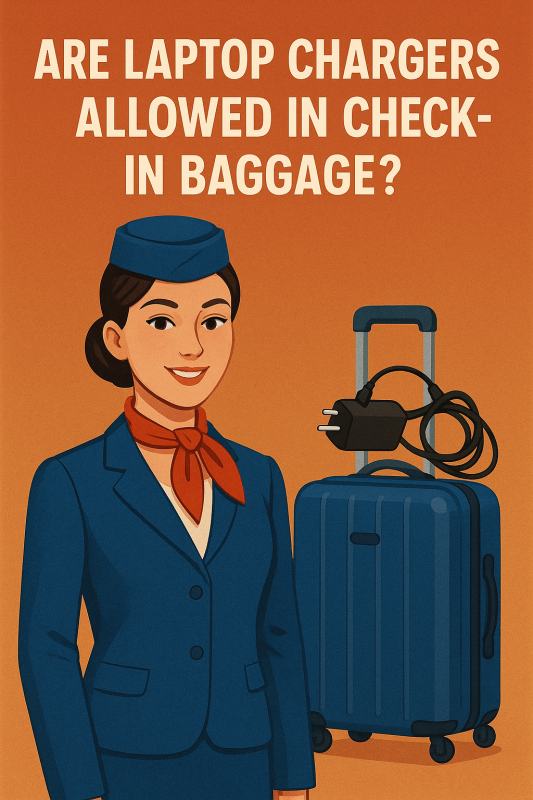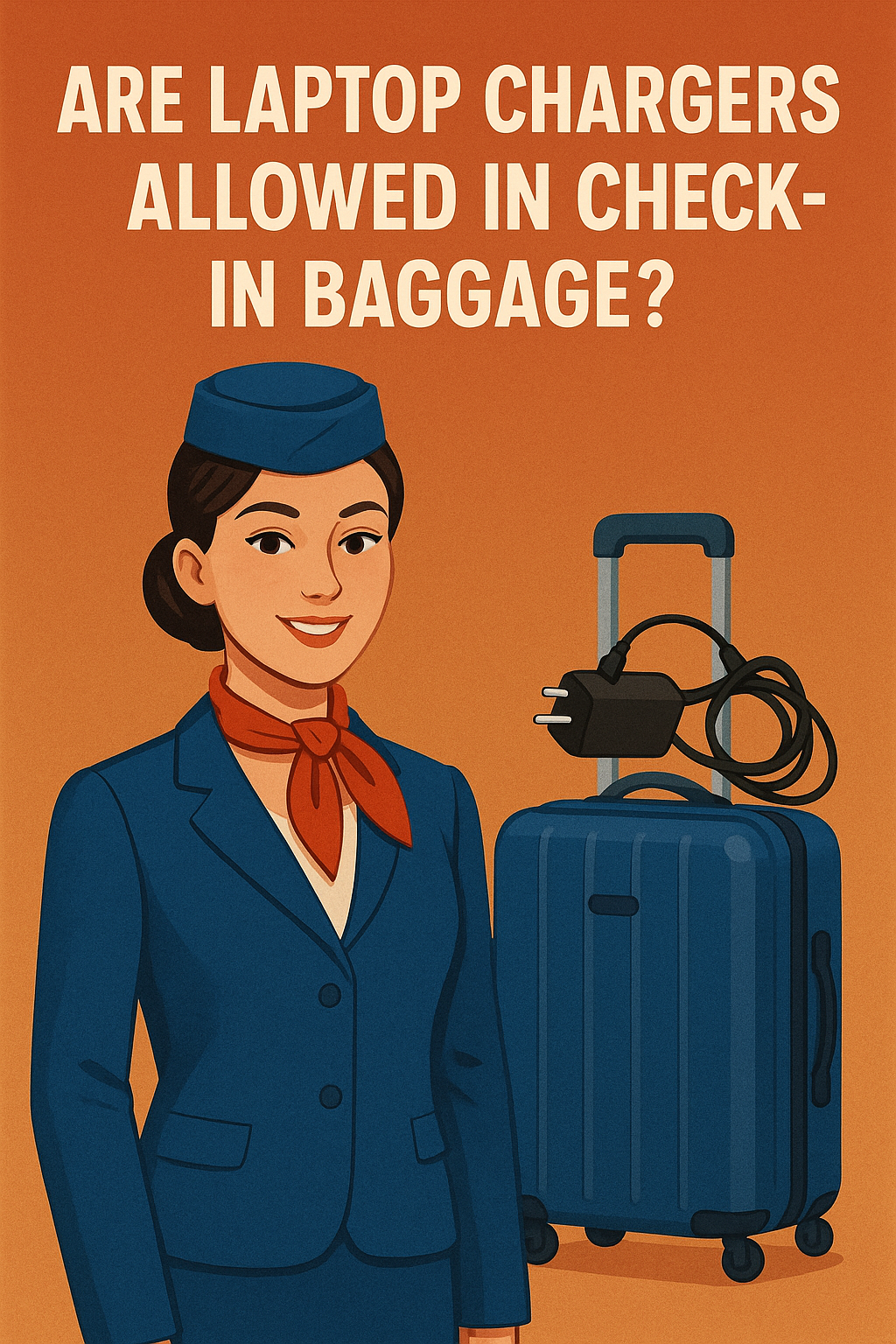Table of Contents
Are Laptop Chargers Allowed in Checked Baggage? A Comprehensive Guide
The question of whether laptop chargers are allowed in checked baggage is a common concern for air travelers. While seemingly straightforward, the answer isn’t always a simple yes or no. This comprehensive guide delves into the complexities surrounding this issue, providing you with the knowledge to pack safely and confidently.

The General Rule: Yes, But with Cautions
Generally, laptop chargers are permitted in checked baggage. However, this permission comes with several important caveats. Airlines don’t explicitly prohibit them, but they fall under the broader category of electronic devices and lithium-ion batteries, which require careful handling and adherence to specific regulations.
Why the Ambiguity?
The ambiguity stems from the potential fire hazard associated with lithium-ion batteries. While rare, these batteries can overheat and even ignite under certain conditions, particularly if damaged. This risk necessitates careful packing and awareness of airline regulations.
Understanding Lithium-Ion Battery Regulations
The key to understanding laptop charger regulations lies in understanding the rules surrounding lithium-ion batteries. These batteries power most modern electronics, including laptops and their chargers. Airlines and regulatory bodies like the FAA (Federal Aviation Administration) and IATA (International Air Transport Association) have established guidelines to mitigate the risks associated with these batteries.
Protection from Damage: The most crucial aspect is protecting the charger from damage. A damaged battery is far more likely to overheat. This means avoiding loose packing, ensuring the charger is well-protected within a sturdy case or bag, and preventing it from being crushed or subjected to extreme temperatures.
Proper Packaging: While not always explicitly stated, it’s best practice to place your laptop charger in a protective case or bag within your checked luggage. This helps prevent accidental damage and keeps it separate from other items that could potentially cause damage.
Spare Batteries: If you’re carrying spare lithium-ion batteries (not just the charger itself), the regulations become stricter. These often need to be carried in your carry-on baggage, and sometimes even individually protected.
Case Studies and Examples
While there aren’t widely publicized cases of laptop chargers causing fires on planes, the potential risk is enough to warrant caution. Several incidents involving lithium-ion batteries in checked baggage have highlighted the importance of proper packing and handling. These incidents, though not always directly related to laptop chargers, underscore the need for responsible packing practices.
Example 1: A passenger’s e-cigarette battery overheated in checked baggage, causing a small fire. While not a laptop charger, this illustrates the potential for similar incidents with lithium-ion batteries.
Example 2: News reports have documented instances where damaged lithium-ion batteries in checked luggage led to delays and investigations, highlighting the disruption caused by such incidents.
Airline-Specific Regulations
While general guidelines exist, it’s crucial to check the specific regulations of the airline you’re flying with. Some airlines may have more stringent rules or specific requirements for packing electronic devices and their chargers. Always refer to the airline’s website or contact their customer service for the most up-to-date information.
Best Practices for Packing Laptop Chargers
To ensure a smooth journey, follow these best practices:
Use the original packaging: If possible, keep your charger in its original packaging for added protection.
Protect it from damage: Place it in a protective case or bag within your checked luggage.
Avoid extreme temperatures: Don’t place it near sources of heat or cold.
Check airline regulations: Always verify the specific rules of your airline before your flight.
Summary
In conclusion, while laptop chargers are generally allowed in checked baggage, it’s crucial to prioritize safe packing practices. Understanding lithium-ion battery regulations, following best practices, and checking airline-specific rules are essential for preventing potential hazards and ensuring a smooth travel experience. Remember, responsible packing is key to a safe and stress-free journey.

